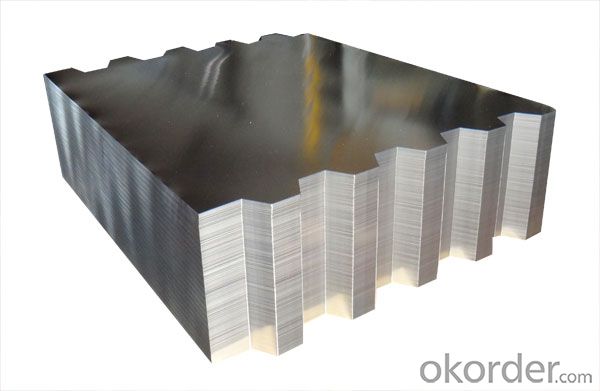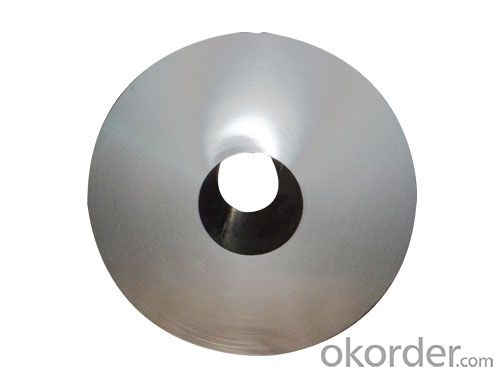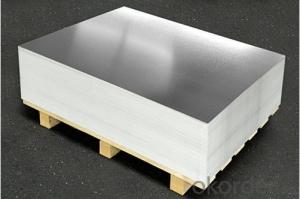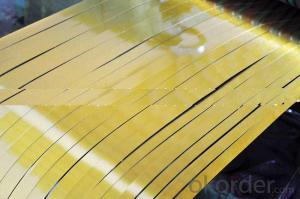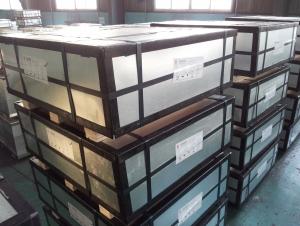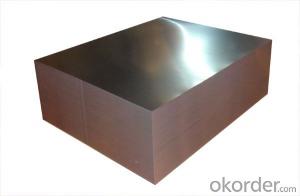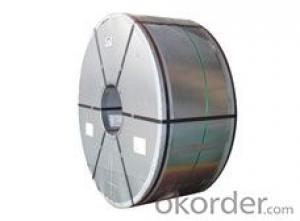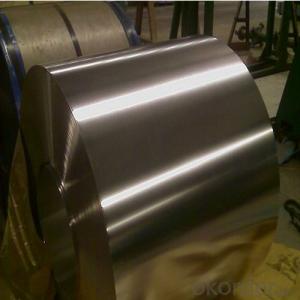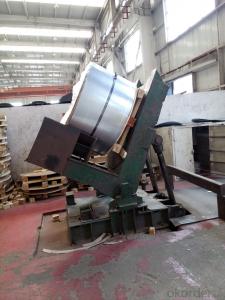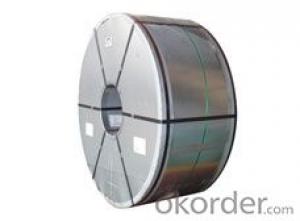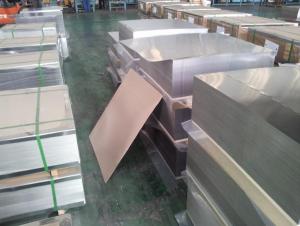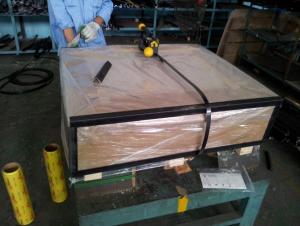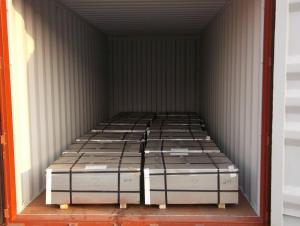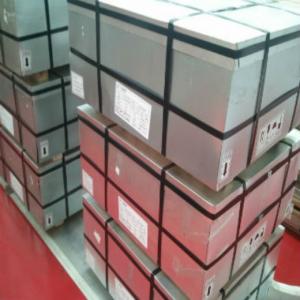Tinplate ETP High Quality
- Loading Port:
- China Main Port
- Payment Terms:
- TT OR LC
- Min Order Qty:
- -
- Supply Capability:
- -
OKorder Service Pledge
Quality Product, Order Online Tracking, Timely Delivery
OKorder Financial Service
Credit Rating, Credit Services, Credit Purchasing
You Might Also Like
Tinplate is widely used for metal package like paint, chemical can,aerosol can and different food can production,
Also battery,electric cable and other industries. Below please kindly refer to our specifications:
| Steel Type | MR | ||
| Temper(BA&CA) | T1~T5, DR8, DR9 | ||
| Coating | 1.1~11.2g/m2 (Both Equal and Differential) | ||
| Thickness and tolerance | 0.15~0.50mm(Tolerance: _+0.01 mm) | ||
| Width & tolerance | 300~1000mm (Tolerance: 0~3mm) | ||
| Cut length & tolerance | 450~``50mm (Tolerance: 0~3mm ) | ||
| Coil inside diameter | 420/508mm | ||
| Coil Weight | 3~10 MT | ||
| Passivation | 311 | ||
| Oiling | DOS | ||
| Surface Finish | Bright, Stone, Silver, Matte | ||
| Packaging | Seaworthy Standard with wooden pallet | ||
| Standards Available | GB/T2520, JIS G3303, ASTM A623M & EN10202 | ||
| Special specitications are available on request. | |||
- Q: How long does tinplate last?
- Tinplate can last for several decades if properly maintained and protected from corrosion.
- Q: What are the main differences between tinplate and tinplate laminates in terms of design flexibility?
- Tinplate offers limited design flexibility due to its rigid nature, while tinplate laminates provide greater design flexibility as they can be combined with other materials, allowing for more creative and versatile packaging options.
- Q: What material is the tin plate, please?
- Popularly speaking, it was tin plated on the surface of the iron sheet, just because it was imported by Macao at that time, so it always called "tinplate iron"
- Q: What are the common thicknesses of tinplate used for different applications?
- The common thicknesses of tinplate used for different applications can vary, but generally range from 0.13mm to 0.49mm. However, specific thickness requirements may depend on the intended use, such as packaging, electronics, or construction.
- Q: What are the environmental benefits of using tinplate?
- Tinplate has a number of environmental benefits. Firstly, it is highly recyclable, meaning that it can be used and reused multiple times without losing its quality or properties. This reduces the need for raw materials and decreases the amount of waste generated. Additionally, tinplate is often used as packaging material, particularly in the food industry, where its barrier properties help to prevent spoilage and extend the shelf life of products. This can reduce food waste and the associated environmental impact. Lastly, tinplate is known for its durability, which means that products made from tinplate tend to have a longer lifespan, reducing the overall demand for new products and minimizing waste generation.
- Q: Can tinplate be used for packaging medical devices?
- Yes, tinplate can be used for packaging medical devices. Tinplate is a durable and corrosion-resistant material that provides adequate protection to medical devices. It is commonly used for packaging pharmaceutical products, including medical devices, due to its ability to maintain product integrity and protect against external contamination.
- Q: What are the different methods of opening tinplate containers?
- There are several methods of opening tinplate containers, including using a can opener, a key opener, a pull tab, or by twisting off a screw cap lid.
- Q: What are the different types of tinplate coatings available?
- There are several types of tinplate coatings available, including electrolytic tinplate (ETP), tin-free steel (TFS), and black plate. ETP is the most commonly used and consists of a thin layer of tin on both sides of the steel substrate. TFS, on the other hand, does not have a tin coating but is instead coated with a layer of chromium or chromium oxide. Black plate refers to steel that has not been coated with any protective layer and is typically used for industrial applications.
- Q: What are the main applications of tinplate in the pet food industry?
- The main applications of tinplate in the pet food industry include packaging for wet and dry pet food products, as it provides a durable and protective barrier against moisture, air, and light. Tinplate cans also offer convenience in terms of storage and transportation, ensuring the freshness and quality of pet food while being easy to handle for pet owners.
- Q: What are the common challenges in processing tinplate?
- Some common challenges in processing tinplate include achieving uniform tin coating thickness, preventing scratches or abrasions during handling and transportation, maintaining dimensional stability during cutting and shaping processes, ensuring proper adhesion between the tin coating and the base metal, and minimizing the formation of defects such as dents or wrinkles. Additionally, maintaining cleanliness and avoiding contamination during processing are also significant challenges.
Send your message to us
Tinplate ETP High Quality
- Loading Port:
- China Main Port
- Payment Terms:
- TT OR LC
- Min Order Qty:
- -
- Supply Capability:
- -
OKorder Service Pledge
Quality Product, Order Online Tracking, Timely Delivery
OKorder Financial Service
Credit Rating, Credit Services, Credit Purchasing
Similar products
Hot products
Hot Searches
Related keywords




